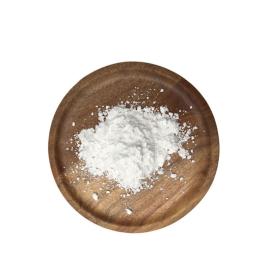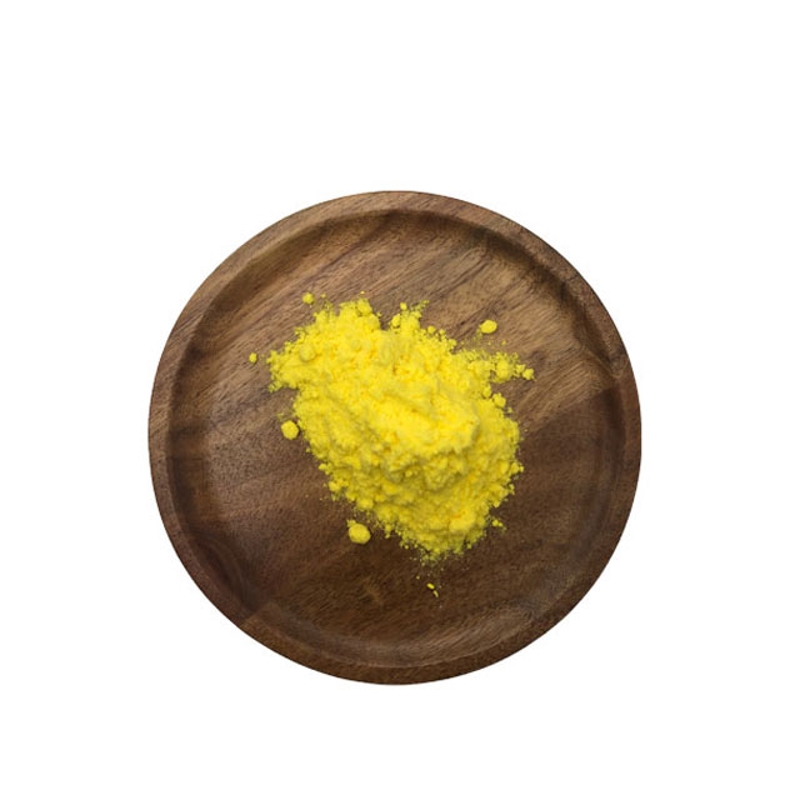-
Categories
-
Pharmaceutical Intermediates
-
Active Pharmaceutical Ingredients
-
Food Additives
- Industrial Coatings
- Agrochemicals
- Dyes and Pigments
- Surfactant
- Flavors and Fragrances
- Chemical Reagents
- Catalyst and Auxiliary
- Natural Products
- Inorganic Chemistry
-
Organic Chemistry
-
Biochemical Engineering
- Analytical Chemistry
- Cosmetic Ingredient
-
Pharmaceutical Intermediates
Promotion
ECHEMI Mall
Wholesale
Weekly Price
Exhibition
News
-
Trade Service
The approval of Ibrutinib, Idelalisib, Acalabrutinib and other kinase inhibitors (KI) in the United States has brought a good disease remission rate and no disease to patients with newly-treated and relapsed and refractory (R/R) chronic lymphocytic leukemia (CLL).
Progressive survival (PFS) benefits.
In some studies, KI also brings overall survival (OS) benefits to CLL patients.
However, relevant clinical studies have shown that some CLL patients will experience adverse events (AE) after receiving KI treatment, and many CLL patients will still stop KI due to AE when the disease is in remission.
In some studies, the proportion of patients with discontinuation of Ibrutinib and Idelalisib caused by AE was even higher than the proportion of patients with discontinuation caused by CLL disease progression or transformation.
For these CLL patients who cannot tolerate KI, other treatments are still needed to improve the clinical benefit.
Umbralisib (TGR 1202) is a dual inhibitor of PI3K-δ and CK1-ε.
A previous study involving 347 patients with R/R malignant lymphoma showed that the total withdrawal rate caused by Umbralisib-related AEs was less than 10% .
A multi-center, single-arm, phase II study explored the efficacy and safety of Umbralisib in CLL patients who could not tolerate KI in the past.
The main results of the study are summarized below for the reference of readers.
The key point Umbralisib is safe and effective in CLL patients who cannot tolerate BTK inhibitors and PI3K inhibitors.
Research methods The study included patients with CLL who had an ECOG score ≤2 and who could not tolerate BTK inhibitors or PI3K inhibitors before treatment was interrupted in 14 centers in the United States.
In the study, "intolerance" was defined as the occurrence of at least one of the following conditions: (a) occurrence of ≥2 non-hematological AEs; (b) occurrence of ≥1 grade 3 non-hematological AEs; (c) occurrence of ≥1 Grade 3 neutropenia with infection or fever; (d) any Grade 4 hematological AEs.
The study included patients who received 800 mg Umbralisib daily until disease progression or intolerable AEs occurred.
The primary endpoint of the study was the PFS after the patient received Umbralisib treatment, and the secondary endpoints included safety, treatment failure time, overall response rate (ORR) and duration of response.
Results of the study The overall situation of the patients The study included 51 patients from October 2016 to June 2018, of which 50 patients can be evaluated for efficacy (1 patient had a Richter transformation at the time of enrollment).
The median age of the patients was 70 years (range: 48-96 years), and the median number of previous treatments was 2 (range: 1-7).
Forty-four patients (86%) had previously discontinued BTK inhibitors due to AEs (42 ibrutinib and 2 acalabrutinib), and 7 patients had previously discontinued PI3K inhibitors due to AEs (7 cases of Idelalisib).
Of the 7 patients who were previously unable to tolerate PI3K inhibitors, 4 patients had received ibrutinib treatment (of which 2 patients were unable to tolerate ibrutinib treatment).
In the study, a total of 73 AEs occurred in 51 patients that led to the discontinuation of KI, and the median number of AEs in the patients was 1 (range: 1-3).
Among patients who have previously stopped using BTK inhibitors, the most common AEs that led to discontinuation were skin rash (14 cases), arthralgia (9 cases), atrial fibrillation (8 cases), bleeding (4 cases), and fatigue (4 cases) .
Among patients who have previously stopped PI3K inhibitors, the most common AEs leading to discontinuation were colitis (3 cases) and pneumonia (2 cases).
The median time for patients with previous KI treatment was 9 months (range: 0.
7-38 months), and the median time from discontinuation of KI treatment to enrollment in the study was 3 months (range: 1-12 months). Safety: 4 patients (8%) recurred AEs (diarrhea and bruises, diarrhea, rash, nausea and fatigue; 4 patients had previously been treated with ibrutinib) that caused intolerance of KI, 3 of them The severity of the recurring AE was low, and the dose of Umbralisib did not need to be adjusted.
One patient discontinued Umbralisib due to grade 3 drug-related rash.
Seven patients who received Idelalisib in the past did not experience recurrence of AEs.
AEs of particular concern in the study include colitis, pneumonia, and elevated transaminases.
The median duration of grade 3 diarrhea events was 4 days (range: 1-54 days), and no grade 4 diarrhea events were observed.
One patient developed colitis after 6 weeks of treatment, and the colitis was relieved after 2 weeks of treatment.
The patient was subsequently treated with a reduced dose of Umbralisib (600 mg daily) and remission was achieved after 25 months of treatment.
Another 8 patients (16%) reduced the dose of Umbralisib due to AEs (elevated transaminase, arthralgia, arthritis, headache, mucosal inflammation, blood cell reduction, diarrhea), and 6 patients due to AEs (3 cases of pneumonia, pancreatitis, dermatitis) 1 case each for rash and 1 case) Umbralisib was discontinued.
No fatal AEs were observed in the study.
At a median follow-up of 23 months (range: 14.
7-34.
6 months), 16 patients (32%) were still receiving Umbralisib.
The estimated median PFS of patients was 23.
5 months (95%CI: 13.
1-NE), and the 12-month and 24-month PFS rates were 72% and 46%, respectively.
As of the data cutoff, 58% of patients (59% of patients previously treated with BTK inhibitors and 43% of patients previously treated with PI3K inhibitors) have received Umbralisib longer than they have previously received KI.
The median OS of the study has not yet been reached, and a total of 3 patients died, all due to disease progression.
Two of the patients died due to disease progression 3 months after discontinuing Umbralisib, and one patient subsequently received Venecla-related treatment and died due to disease progression 1 year later.
There are 2 patients who have been evaluated by the investigator and the efficacy cannot be evaluated.
Umbralisib has an ORR of 44% in 48 patients with evaluable efficacy (19 patients achieved partial remission [PR], 2 patients achieved complete remission [CR]), 94.
4% Of patients have reduced lymph nodes.
Research conclusions Umbralisib is a safe treatment option for CLL patients who cannot tolerate BTK inhibitors and PI3K inhibitors.
The prospective data of the study showed that Umbralisib can bring lasting and well-tolerated disease remission for these patients.
Reference: Anthony R.
Mato, Nilanjan Ghosh, Stephen J.
Schuster, Nicole Lamanna, et al.
Phase 2 study of the safety and efficacy of umbralisib in patients with CLL who are intolerant to BTK or PI3Kδ inhibitor therapy.
Blood (2021) 137 (20): 2817–2826.
; https://doi.
org/10.
1182/blood.
2020007376 stamp "read the original text", we make progress together
Progressive survival (PFS) benefits.
In some studies, KI also brings overall survival (OS) benefits to CLL patients.
However, relevant clinical studies have shown that some CLL patients will experience adverse events (AE) after receiving KI treatment, and many CLL patients will still stop KI due to AE when the disease is in remission.
In some studies, the proportion of patients with discontinuation of Ibrutinib and Idelalisib caused by AE was even higher than the proportion of patients with discontinuation caused by CLL disease progression or transformation.
For these CLL patients who cannot tolerate KI, other treatments are still needed to improve the clinical benefit.
Umbralisib (TGR 1202) is a dual inhibitor of PI3K-δ and CK1-ε.
A previous study involving 347 patients with R/R malignant lymphoma showed that the total withdrawal rate caused by Umbralisib-related AEs was less than 10% .
A multi-center, single-arm, phase II study explored the efficacy and safety of Umbralisib in CLL patients who could not tolerate KI in the past.
The main results of the study are summarized below for the reference of readers.
The key point Umbralisib is safe and effective in CLL patients who cannot tolerate BTK inhibitors and PI3K inhibitors.
Research methods The study included patients with CLL who had an ECOG score ≤2 and who could not tolerate BTK inhibitors or PI3K inhibitors before treatment was interrupted in 14 centers in the United States.
In the study, "intolerance" was defined as the occurrence of at least one of the following conditions: (a) occurrence of ≥2 non-hematological AEs; (b) occurrence of ≥1 grade 3 non-hematological AEs; (c) occurrence of ≥1 Grade 3 neutropenia with infection or fever; (d) any Grade 4 hematological AEs.
The study included patients who received 800 mg Umbralisib daily until disease progression or intolerable AEs occurred.
The primary endpoint of the study was the PFS after the patient received Umbralisib treatment, and the secondary endpoints included safety, treatment failure time, overall response rate (ORR) and duration of response.
Results of the study The overall situation of the patients The study included 51 patients from October 2016 to June 2018, of which 50 patients can be evaluated for efficacy (1 patient had a Richter transformation at the time of enrollment).
The median age of the patients was 70 years (range: 48-96 years), and the median number of previous treatments was 2 (range: 1-7).
Forty-four patients (86%) had previously discontinued BTK inhibitors due to AEs (42 ibrutinib and 2 acalabrutinib), and 7 patients had previously discontinued PI3K inhibitors due to AEs (7 cases of Idelalisib).
Of the 7 patients who were previously unable to tolerate PI3K inhibitors, 4 patients had received ibrutinib treatment (of which 2 patients were unable to tolerate ibrutinib treatment).
In the study, a total of 73 AEs occurred in 51 patients that led to the discontinuation of KI, and the median number of AEs in the patients was 1 (range: 1-3).
Among patients who have previously stopped using BTK inhibitors, the most common AEs that led to discontinuation were skin rash (14 cases), arthralgia (9 cases), atrial fibrillation (8 cases), bleeding (4 cases), and fatigue (4 cases) .
Among patients who have previously stopped PI3K inhibitors, the most common AEs leading to discontinuation were colitis (3 cases) and pneumonia (2 cases).
The median time for patients with previous KI treatment was 9 months (range: 0.
7-38 months), and the median time from discontinuation of KI treatment to enrollment in the study was 3 months (range: 1-12 months). Safety: 4 patients (8%) recurred AEs (diarrhea and bruises, diarrhea, rash, nausea and fatigue; 4 patients had previously been treated with ibrutinib) that caused intolerance of KI, 3 of them The severity of the recurring AE was low, and the dose of Umbralisib did not need to be adjusted.
One patient discontinued Umbralisib due to grade 3 drug-related rash.
Seven patients who received Idelalisib in the past did not experience recurrence of AEs.
AEs of particular concern in the study include colitis, pneumonia, and elevated transaminases.
The median duration of grade 3 diarrhea events was 4 days (range: 1-54 days), and no grade 4 diarrhea events were observed.
One patient developed colitis after 6 weeks of treatment, and the colitis was relieved after 2 weeks of treatment.
The patient was subsequently treated with a reduced dose of Umbralisib (600 mg daily) and remission was achieved after 25 months of treatment.
Another 8 patients (16%) reduced the dose of Umbralisib due to AEs (elevated transaminase, arthralgia, arthritis, headache, mucosal inflammation, blood cell reduction, diarrhea), and 6 patients due to AEs (3 cases of pneumonia, pancreatitis, dermatitis) 1 case each for rash and 1 case) Umbralisib was discontinued.
No fatal AEs were observed in the study.
At a median follow-up of 23 months (range: 14.
7-34.
6 months), 16 patients (32%) were still receiving Umbralisib.
The estimated median PFS of patients was 23.
5 months (95%CI: 13.
1-NE), and the 12-month and 24-month PFS rates were 72% and 46%, respectively.
As of the data cutoff, 58% of patients (59% of patients previously treated with BTK inhibitors and 43% of patients previously treated with PI3K inhibitors) have received Umbralisib longer than they have previously received KI.
The median OS of the study has not yet been reached, and a total of 3 patients died, all due to disease progression.
Two of the patients died due to disease progression 3 months after discontinuing Umbralisib, and one patient subsequently received Venecla-related treatment and died due to disease progression 1 year later.
There are 2 patients who have been evaluated by the investigator and the efficacy cannot be evaluated.
Umbralisib has an ORR of 44% in 48 patients with evaluable efficacy (19 patients achieved partial remission [PR], 2 patients achieved complete remission [CR]), 94.
4% Of patients have reduced lymph nodes.
Research conclusions Umbralisib is a safe treatment option for CLL patients who cannot tolerate BTK inhibitors and PI3K inhibitors.
The prospective data of the study showed that Umbralisib can bring lasting and well-tolerated disease remission for these patients.
Reference: Anthony R.
Mato, Nilanjan Ghosh, Stephen J.
Schuster, Nicole Lamanna, et al.
Phase 2 study of the safety and efficacy of umbralisib in patients with CLL who are intolerant to BTK or PI3Kδ inhibitor therapy.
Blood (2021) 137 (20): 2817–2826.
; https://doi.
org/10.
1182/blood.
2020007376 stamp "read the original text", we make progress together







